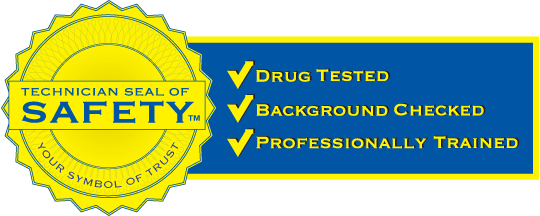Unusual Ways Your Home is Affecting Your Indoor Air Quality
As we traverse the ever-evolving landscape of health and wellness, we often scrutinize our diet, exercise, and lifestyle habits. However, a crucial aspect tends to fall off the radar: the air quality in our homes. It’s a fascinating yet often overlooked dimension, that’s silently shaping our health and well-being. The hidden elements in our living spaces can greatly influence indoor air quality, leading to unexpected implications for our health.
From the paint on your walls to the carpet under your feet, your home is an intricate network of factors affecting indoor air quality. It’s high time we delve into the unusual ways your home can play a pivotal role in determining the level of indoor pollutants you’re exposed to.
Sitton Mechanical uncovers the less obvious ways your home could affect indoor air quality. It’s time to breathe easy, knowing you’re doing everything you can to foster a healthier living space.
Unexpected Sources of Indoor Air Pollution
1. Household Cleaning Products and Chemicals
You might be unaware that many household cleaning products contain volatile organic compounds (VOCs) that can be released into the air during and after use. These chemicals, found in items like air fresheners, upholstery cleaners, and disinfectants, can contribute to poor indoor air quality. To mitigate this issue, consider switching to natural or fragrance-free cleaning products and opt for more environmentally friendly alternatives.
2. Indoor Plants
While indoor plants are known to improve air quality by absorbing carbon dioxide and releasing oxygen, some can harbor mold and allergens, particularly in their soil. Overwatering plants can create a damp environment, promoting mold growth. Combat this issue by being mindful of your watering schedule, ensuring proper drainage, and choosing plant species that are less susceptible to mold development.
3. Cooking Activities
Cooking can also contribute to poor indoor air quality by releasing particulates, combustion byproducts, and excess moisture in your home. Gas stoves, in particular, can emit nitrogen dioxide and carbon monoxide. To help minimize these impacts, ensure adequate ventilation in your kitchen, use exhaust fans when cooking, and regularly clean your stovetop and oven to reduce grease buildup.
4. Humidity and Condensation
High indoor humidity and condensation can encourage mold and mildew growth, leading to a decline in air quality. Managing humidity levels is crucial; consider utilizing a dehumidifier in damp areas and properly ventilating rooms that generate excess moisture, such as bathrooms or kitchens. Be sure to clean or repair your home’s ventilation systems regularly to maintain optimal humidity control.
How to Improve Your Indoor Air Quality
1. Maintain and Upgrade Air Filters
Regularly inspecting, cleaning, or replacing your air filters is vital for the efficient operation of your heating and cooling systems. A clean air filter results in better air quality by trapping airborne particles, such as dust, pollen, and pet dander. Furthermore, consider upgrading to higher-quality filters with a higher MERV rating for improved filtration and air quality.
2. Invest in an Air Purifier
An air purifier can help eliminate the various pollutants affecting your indoor air quality. Available in several types, such as mechanical filters, activated carbon filters, and ultraviolet germicidal irradiation, air purifiers can target specific concerns like allergens, VOCs, and bacteria. Select the appropriate air purifier for your needs and regularly maintain it for optimal performance.
3. Keep Your Home Clean
Consistent housekeeping plays a critical role in maintaining good indoor air quality. Regular dusting and vacuuming help reduce the number of allergens and pollutants that can accumulate. Additionally, cleaning your floors, upholstery, and bedding can help control dust mites, pet dander, and other irritants.
4. Ensure Proper Ventilation
Proper ventilation is crucial for balancing your indoor air quality by allowing fresh outdoor air to enter while expelling stale, polluted air. Utilize exhaust fans in moisture-prone areas, open windows to promote natural air circulation, and have your home’s ventilation system regularly inspected and maintained to ensure efficient operation.
5. Adopt a No-Smoking Policy
Tobacco smoke is a well-known source of harmful chemicals and pollutants, significantly impacting indoor air quality. Implement a strict no-smoking policy within your living space to protect your home’s air quality and your family’s health.
6. Test Your Home for Radon
Radon gas is a colorless, odorless, and naturally occurring radioactive gas that can accumulate in your home and pose a significant health risk. To protect your indoor air quality, have your home tested for radon by a professional and invest in mitigation solutions if necessary.
7. Control Humidity Levels
As mentioned earlier, high humidity levels can contribute to poor indoor air quality. Monitor and maintain your home’s humidity levels using dehumidifiers, proper ventilation, and regular cleaning to discourage mold and mildew growth.
By understanding these unusual factors contributing to poor indoor air quality, you can take the necessary steps to create a healthier, more comfortable living environment. Regularly cleaning and maintaining your home, investing in air filtration and purification solutions, and being mindful of your everyday activities can significantly impact the air you breathe inside your home.
Breathing Easier with Improved Indoor Air Quality
Ultimately, the onus lies with us to make our homes a truly safe and healthy environment. Ignorance of these unusual ways our homes affect our indoor air quality is no longer justifiable, given the potential health risks. The quality of the air we breathe indoors should not be taken for granted, as it plays a pivotal role in our overall well-being.
When ready to make the necessary changes and optimize your home’s indoor air quality, rely on our skilled HVAC contractors in Stillwater to guide you through the process and recommend effective solutions tailored to your needs. Contact Sitton Mechanical today to schedule a consultation and experience the peace of mind that comes from knowing your home’s air quality is in expert hands.




